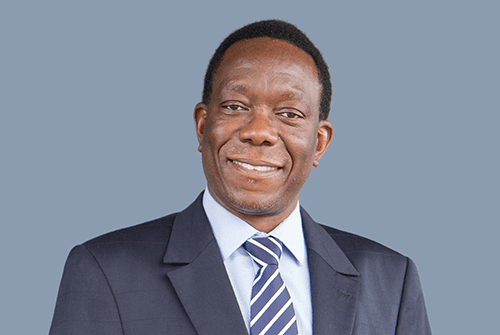Following the accession of President Nangolo Mbumba to the highest office in the land, the public became embroiled in a debate on the legalities surrounding his assumption to presidency.
Mbumba was sworn in as Namibia’s fourth president on 4 February. He moved from Vice President to President within hours of Geingob’s untimely death.
In light of the ongoing debate, Attorney General (AG) Festus Mbandeka clarified in a media statement on Wednesday the aspersions being cast around Mbumba’s presidency and the legal interpretation and meaning of Articles 29(4)(a) and 34(1).
He said whilst the debate may be constructive and healthy in a democratic State, the government is concerned about misinformation.
“…Government is profoundly concerned about the misleading interpretations, reports and what appears to be deliberate misinformation on the issue of the recent presidential succession. This deliberate misinformation is unfortunate,” stressed Mbandeka.
He explained that Mbumba’s ascension to power is in line with the Constitution, so is the appointment of Netumbo Nandi-Ndaitwah as Vice President.
“In summary, Article 29(4)(a), read together with Article 34(1), requires that, if a vacancy in the office of President occurs not more than one year before the date on which the Presidential elections are to be held, such vacancy shall be filled ‘for the unexpired period’ primarily by the person who is the Vice President,” noted Mbandeka.
He added that the Vice President is listed first in the succession order specified in Article 34(1).
The AG further clarified that unlike in the case of the death of the president-elect (which is not the case in the present circumstances), provided for under Article 28(2C), the vacant position is then “assumed” by the Vice President “in an acting capacity”.
Mbandeka continued that Article 29(4)(a) and Article 34(1) do not direct that the person filling the vacant position of the President (not President-elect) must do so “in an acting capacity”.
Furthermore, the affirmation as stipulated by Article 30 is required to be taken by a person serving as President, even if such a person became a President in terms of
Article 29(4)(a), read with Article 34(1).
Thus, Mbumba and Nandi-Ndaitwah will respectively serve until 21 March 2025.
“Government, therefore, categorically rejects reports, in some print media, that Government is currently conducting a high-level investigation to determine whether or not there were mistakes in the process of succession,” said Mbandeka.
The Office of the Judiciary, in a media statement yesterday, acknowledged the public discourse regarding the presidential succession. However, they indicated that although one of its functions is to interpret the provisions of the constitution and any other law, it cannot do it outside the courtroom.
“This approach is essential in ensuring that the Judiciary is impartial in the execution of its constitutional mandate, and at the same time gives effect to the principle of separation of powers, which is a cardinal feature of our country’s democratic system of governance,” read the statement.
-mamakali@nepc.com.na
Rule of law… Attorney General Festus Mbandeka. Photo: File


